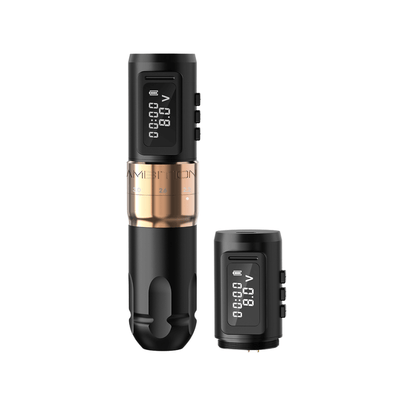One of the significant pain points that budding tattoo artists must navigate is understanding and complying with the intricate tattoo licence requirements imposed by local authorities across the country.
These licensing regulations, designed to ensure public safety and uphold industry standards, can be a formidable obstacle to setting up a successful tattoo studio.
In this article, we delve into the essential tattoo licence requirements, shedding light on the crucial steps, nuances, and considerations that every aspiring tattoo artist in the UK must grapple with to turn their tattooing dreams into a legal and thriving reality.
What tattoo licence do you need for tattooing?
In the United Kingdom, tattoo artists and studios typically require a "tattoo, piercing, and electrolysis licence" or a "special treatments licence" to operate legally. The specific name and requirements of the licence may vary by local authority or council, as licensing is administered at the local level.

Is a licence required for performing skin piercing and tattooing?
Yes, a licence is typically required for performing body piercing and tattooing in many jurisdictions, including the UK. Tattoo and piercing licences are essential to ensure practitioners meet specific health and safety standards and regulations established by local authorities or government agencies.
The licensing process is designed to safeguard the health and well-being of both practitioners and clients, reduce the risk of infections and complications, and maintain high standards of hygiene in tattoo and piercing studios.
Therefore, anyone considering a career in tattooing or skin piercing should consult their local council or relevant regulatory authority to understand the specific licensing requirements and procedures in their area. Failure to get the necessary licence can result in legal consequences and the closure of the business.
Legal requirements in setting up and running your tattoo business
Register yourself and your premises with your local council
Before operating your tattoo shop business, you must register both yourself and your premises with your local council to obtain a tattoo, piercing, and electrolysis licence. To do this, you should:
- Be over 18 years of age: Only individuals who are 18 years or older are eligible to register.
- Provide details about yourself and your premises: Submit comprehensive details including your name, contact information, and business address.
- Pay a one-off registration fee: Determined by the local council, fees vary depending on area.
- Be vaccinated against hepatitis B: Proof of vaccination is typically required to protect both you and your clients.
It is important to check with your specific local council for the exact requirements, fees, and procedures.
Register with your Local Environmental Health Department
Tattoo artists must register with their local Environmental Health department. This ensures compliance with health and safety standards and involves inspections.
Workplace (Health, Safety and Welfare) Regulations (1992)
Businesses with five or more employees must conduct risk assessments, ensure safe working conditions, and maintain equipment. Adequate ventilation, lighting, cleanliness, and spacing in the studio are essential.
Tattooing of Minors Act (1969)
This Act prohibits tattooing individuals under the age of 18. Businesses must request photo ID to verify client age before proceeding.

Provision and Use of Work Equipment Regulations (PUWER) 1998
Tattoo machines and equipment must be fit for purpose, regularly maintained, and used safely.
Control of Substances Hazardous to Health (COSHH)
Artists must assess, control, and reduce risks associated with inks, sterilising materials, and chemicals.
Reporting of Injuries, Diseases, and Dangerous Occurrences Regulations (RIDDOR)
All workplace injuries, diseases, and incidents must be reported to the Health and Safety Executive (HSE).
Manual Handling Operations Regulations
Tattooing involves repetitive strain on hands, wrists, and arms. Compliance helps protect artists from injuries.
General Data Protection Regulations (GDPR) and the Data Protection Act (DPA)
Customer data must be secured and managed responsibly, with a licence obtained if processing personal data.
Be aware of copyright infringement laws
Avoid knowingly copying another artist's work. Original designs can be registered with the Intellectual Property Office (IPO).
Dispose of waste appropriately
Studios generate hazardous waste like needles and gloves. Proper disposal via authorised waste carriers is required.
Register for self-assessment tax
Tattoo business owners must register with HMRC, track finances, and submit annual taxes.

What is the duration of the licence validity?
Licence validity varies by council, typically one year. Renewal deadlines must be met to remain compliant.
Can individuals from outside the UK also obtain a licence?
Yes, but non-UK residents (under 10 years in the UK) may need a Certificate of Good Conduct or Criminal Record Certificate from their home country, plus official translations if not in English.
Get your tattoo licence
Navigating tattoo licence requirements is challenging but necessary. By adhering to the process, artists protect themselves and clients, while building a professional, credible business.




























































 Studio supplies
Studio supplies












 Power & batteries
Power & batteries







 Aftercare
Aftercare



















 Apprentice
Apprentice


 Piercing & jewellery
Piercing & jewellery







 PMU supplies
PMU supplies



 New arrivals
New arrivals
 Gift vouchers
Gift vouchers
 Shop all
Shop all










































